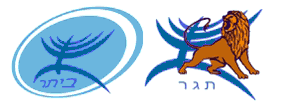A 20-year-old IDF private in handcuffs is led into a military court on a base near Ashkelon. Some 80 supporters are there to greet him, waving Israeli flags and carrying signs reading: "Save Our Soldiers" "Free the Soldier," "Prosecute the ISM" and "No Human Shields in War Zones."
The soldier, son of a poor Beduin family from the north of Israel, is accused of manslaughter in the death last year of British International Solidarity Movement member Tom Hurndall.
Hurndall, product of a British public school education, was shot in Rafah in April 2003. He was making his way to an area where the IDF was operating to uncover tunnels used to convey arms and ammunition from Egypt.
IDF officials say that an initial investigation, based on soldiers' accounts, indicated a Palestinian fired on a watchtower and that soldiers returned fire, hitting someone believed to be the gunman.
Hurndall deliberately put himself in the area of known military operations, and took a bullet intended for a terrorist. His supporters say Hurndall was simply attempting to shield Palestinian children. But the IDF noted that ISM activities were "illegal, irresponsible, and dangerous" and led to Hurndall's "tragic death."
Hurndall must have been aware of the risks inherent in his activity in Rafah. In one diary entry he wrote: "A few hundred meters away there are army snipers, and each one of us can appear in a sniper's telescopic sight. It is possible to say with certainty that they are watching us, and my life is in the hands of an Israeli marksman or settler. I know that I will probably never know what hit me, but that is part of my role – to be as exposed as possible."
We'll never know why Hurndall viewed his exposure as a crucial factor in bringing about peace in the Middle East, but this upper-middle-class lad from north London, before arriving in Israel, first tried his hand at being a human shield in Iraq.
Hurndall had joined a group of international volunteers who wanted to put themselves in front of Iraqi schools and hospitals; but when they arrived it soon became apparent that sites would be selected by Iraqi government officials. After two weeks of heated discussion, the shields were given a list of seven sites and an ultimatum to "start shielding or start leaving." Hurndall left, passed through Jordan, where he heard about the activities of the ISM, and entered Israel on a tourist visa.
It's worth noting that a number of ISMers seem to be the well-educated offspring of well-to-do parents. Hurndall attended Winchester College, one of England's most venerable and prestigious boarding schools. Tuition at the 600-year-old school is around $30,000 per year.
Tom's father, Anthony Hurndall, is a well-known London property lawyer. Mother Jocelyn, who says she is proud of her son, is head of a learning support unit.
Fellow ISM volunteer Radhika Sainath is a US citizen who has been arrested three times for violating Israeli law during repeated entries into the country between 2002-3. She is the daughter of two California physicians and plans on attending graduate school at Columbia University.
In Hurndall's case the resources and prominence of his family enabled them to hire a high-profile British attorney to realize their efforts to prosecute an Israeli soldier for the death of their son. They chose Imran Khan, a controversial high-powered lawyer who tried to prevent then chief of staff Shaul Mofaz entering Britain for an official visit in 2002 because of "war crimes."
Khan and the Hurndalls ran an effective public campaign that led to British pressure on Israel to finger an Israeli soldier for the unfortunate death of young Tom.
The young Beduin soldier – his name has not been released – arrested in January 2004 after Hurndall's demise in a London hospital was serving his country and tried to do his part to smash terrorism. Now he too is paying the price of the ISM's unconscionable efforts to encourage their volunteers to violate closed military zones.
The accused has spent the last six months in jail. His family is so poverty-stricken that they have been able to afford the bus fare to visit him only once during his incarceration. So far his legal representation has been court-assigned, although Nitsana Darshan-Leitner of the Shurat HaDin Law Center has undertaken a campaign to assist the family.
In court the other day, the accused, a stocky, dark young man dressed in a plain military green uniform, sat silently as his defense attorney addressed the court. His eyes didn't engage anyone in the room – neither the witness nor the dozens who had come to support him seemed to be of interest.
The three judges in the small, wood-paneled courtroom listened intently as a military interrogator answered questions about the interrogation and confession extracted from the accused.
How could the court take this written, six-page confession seriously, asked the attorney, when the defendant neither reads nor writes Hebrew? Why did interrogators have the defendant sign the confession at night, at the end of more than nine hours of interrogation, when he was tired and hungry, after he had allegedly stated: "Give me a cup of coffee and a cigarette, and I'll sign anything."?
"The soldier is being scapegoated by the prosecution to appease the British Foreign Office," charged Darshan-Leitner.
Worse than that, noted Shimon, one of the supporters who had bussed down from Jerusalem. "It's the wrong entity on trial here. It's the ISM who should be sitting there accused, not this soldier, who was doing his best to defend us from terrorist evil."
The writer is author of Jerusalem Diaries: In Tense Times.

